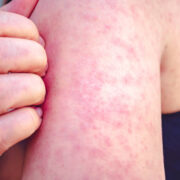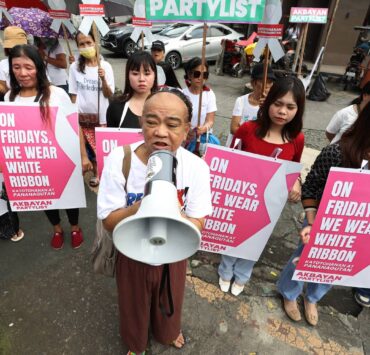We say no to violence against women

On Nov. 25, the International Day for the Elimination of Violence against Women reminds us of the work still to be done. Representatives of France and Romania, we speak today with a united European voice to reaffirm that gender-based violence knows neither borders nor cultures. It is a universal violation of human rights and a silent tragedy affecting all societies.
The figures show that no country is spared. According to UN Women, nearly 736 million women, one in three aged 15 or older, have experienced physical or sexual violence, whether by an intimate partner or not. Among them, more than 640 million were assaulted by an intimate partner. Globally, an average of 140 women or girls are killed every day. Adolescent girls, often the most vulnerable, are on the frontline: 370 million girls and women were victims of rape or sexual assault before adulthood, rising to 650 million if we include harassment and online violence (Unicef).
In Europe, 31 percent of women aged 18 to 74 in the EU have experienced physical or sexual violence. In the Philippines, nearly one in five women with an intimate partner has suffered physical, sexual, or psychological violence, reminding us that gender-based violence is most often committed by someone known to the victim, challenging the idea that violence is accidental.
These acts can be prevented. Within the EU, responses vary, but some point the way forward. Sweden strengthened its zero-tolerance model for sexual violence with a 2018 law based on explicit consent. France has created emergency hotlines and training for law enforcement. In Spain, courts specialized in gender-based violence and an integrated prevention system have reduced domestic homicides. Romania has opened more shelters and launched awareness campaigns.
The Istanbul Convention of the Council of Europe, ratified by the EU, is the most advanced international treaty that commits state parties to preventing violence, protecting victims, prosecuting offenders, and implementing coordinated policies. The EU also encourages international partners, as the Philippines, to adopt equivalent frameworks to harmonize protections for women and strengthen global cooperation.
But new forms of violence are emerging, especially in digital spaces, where violence against women has taken on a disturbing new dimension. Worldwide, 38 percent of women have been victims of online violence, and 85 percent have witnessed it. The COVID-19 lockdown worsened this reality. Poorly regulated platforms amplify violence, threatening not only victims but democracy. In response, the EU has strengthened its stance. A 2023 directive requires member states to recognize cyber harassment and nonconsensual sharing of intimate images as criminal offenses.
In the Philippines, the Safe Spaces Act of 2019 includes online harassment. Europe and Southeast Asia thus face a shared challenge: protecting women in a digital space where violence changes form but not intention. Yet, legal advances require a culture of respect, responsible online behavior, and shared commitment. The EU supports initiatives training young people in respectful digital practices. Protecting women in virtual spaces also means defending democracy and preventing sexist discourse that undermines women’s voices.
The persistence of violence against women is part of a broader global rollback in women’s rights. In 2022, the US Supreme Court overturned Roe v. Wade, which had guaranteed the right to abortion for nearly half a century. In Europe, we also see movements invoking “traditional values,” which have led in some contexts, such as Romania, to debates and differing views regarding approaches to sexual education and reproductive health policies.
These debates resonate in the Philippines, where reproductive health remains a major challenge. According to Save the Children Philippines (2024), more than 500 girls aged 15 to 19 become mothers every day, and pregnancies among girls under 15 are rising. This reflects vulnerability and limited access to health care and education. The adolescent pregnancy prevention bill, aiming to strengthen sex education and access to contraception, was adopted by the House of Representatives but blocked in the Senate after disinformation campaigns.
“Never forget that it will take only a political, economic, or religious crisis for women’s rights to be called into question.” These words by the French writer Simone de Beauvoir remain relevant, in Europe as in the Philippines. The rollback of women’s rights reflects the state of a country’s democratic health. When half the population is attacked, all of society is weakened. Convinced that promoting women’s rights is essential to progress, peace, and democracy, the European Union has made them a priority in its dialogue and cooperation with the Philippines.
Marie Fontanel is the ambassador of France to the Philippines. Răduța Matache is the ambassador of Romania to the Philippines.
This commentary is part of a series of articles in the Philippine Daily Inquirer contributed by European Union Ambassadors to the Philippines, in line with Denmark’s Presidency of the EU Council from July to December 2025. The articles focus on strategic areas of cooperation between the EU and the Philippines.

















